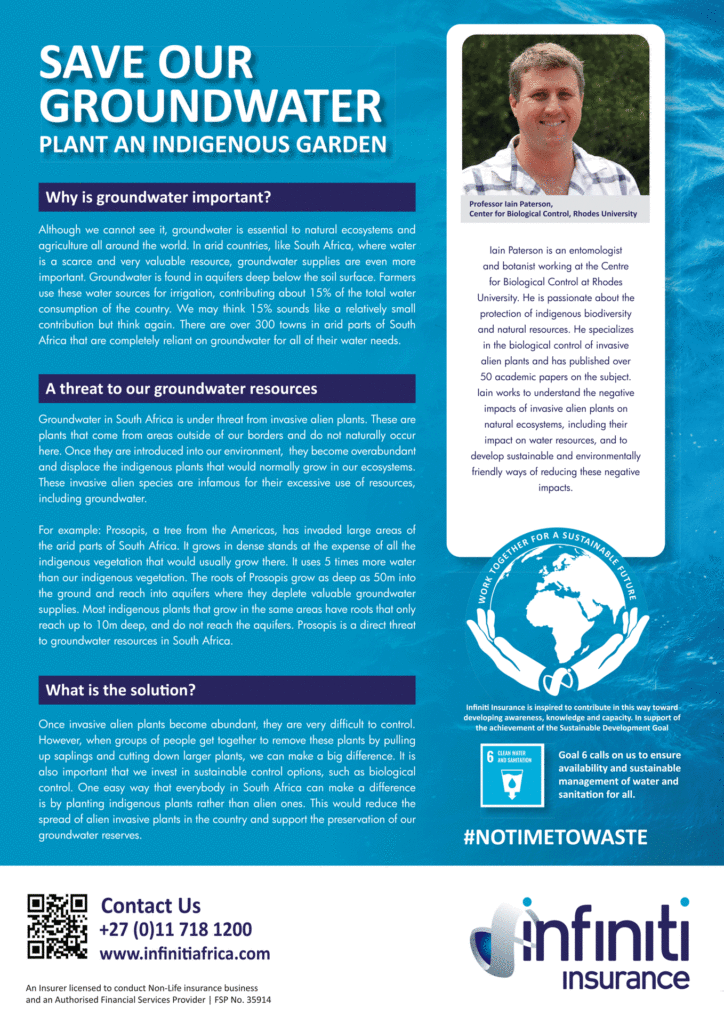Nicolaas van Wyk, CEO of the Southern African Institute of Business Accountants (SAIBA)

Listed companies stand to lose more than $10 trillion in funding if they don’t adopt new climate reporting standards.
The world’s largest United States-based asset management company, BlackRock, which has $10 trillion under management, recently announced that – by 2050 – it will only invest in companies that are able to report net zero emissions in their financial statements and integrated reports.
This follows the new urgency at the 2021 United Nations Climate Change Conference (COP 26) to address climate change issues, and the agreement by global powers to put legislation into place to compel companies to report on their climate change efforts in pursuit of a net-zero emissions target by 2050.
COP26 also created a category for Chief Financial Officers (CFO) – the CFO Task Force – in the realisation that climate change efforts cannot be separated from business and with the understanding that there is an urgent need to involve key decision makers in reporting on progress as it relates to the climate change agenda.
SAIBA would not be surprised if South Africa’s Public Investment Corporation (PIC), which also has trillions of Rands under management, were to follow BlackRock’s lead. This is a move that could have serious implications for South African companies, whether they are listed entities, large private companies or small to medium enterprises (SMEs).
Following these and other developments, SAIBA met with its sister association, the Association Nationale des Directeurs Financiers et de Contrôle de Gestion (DFCG), and other affiliate CFO institutes from Germany, Greece, Italy, Mexico, Morocco, Portugal, Spain, Tunisia and Western Africa at the annual Financium conference, held in Paris on 7 December 2021.
Here, the call was made for an international alliance of CFOs – the CFO Alliance – to address collaborative opportunities in areas of mutual interest, with the first board meeting held on 31 January 2022, and where SAIBA was represented.
One of the key areas of interest relates to Environmental, Social and Governance (ESG) considerations and the importance of working together to provide CFOs and Finance Directors (FDs) with an active forum and network through which to learn, discuss and engage on important international initiatives actively underway in Europe and the world, such as the reporting standards on sustainability and climate change proposed at COP26.
Other areas of agreed collaboration include digitisation and taxation, with additional topics being explored to ensure that all countries and continents are given a voice and the opportunity to lead these, or other, common topics of interest on behalf of members.
With more than 300 000 CFOs, FDs, Financial Managers (FMs)and Financial Controllers (FCs) responsible for the financial management of the $300 billion South African economy, South Africa is well placed to influence and lead the development of international standards and realignment.
We called on SAIBA CFOs to become involved in the alliance and add their voices and expertise to its various working groups aimed at addressing the areas of ESG Reporting, Automation and Digitisation, and International Tax. We received 134 applications from our members/networks to volunteer for the three working groups. Nine of these will be selected to represent us in the three CFO Alliance working groups.
Currently, the Companies Act only requires that large and listed entities submit financial statements and audit reports based on International Financial Reporting Standards (IFRS) standards. With a third sustainability and climate change report proposed at COP26, various parties will collaborate to come up with sustainability standards that companies can measure themselves against.
SAIBA has a two-fold involvement in the process. Firstly, with SMEs also expected to produce sustainability and climate change reports, we want to ensure that they are not over-burdened by the requirement and, secondly, we are working with our software partner, Draftworx, to develop an automated system that will make it easier for businesses to report.
All companies worldwide will need to report in the same way and the UN has suggested the results of this reporting be collectible on a worldwide platform to measure the different countries’ progress. This will require software that can be shared globally and that allows businesses to report in a cost-effective way.
Notably, SAIBA is also working with Regenesys Business School to develop an ESG course for CFOs that will take them through the various Company Law changes, provide them with sustainability and climate change considerations to address at their strategic meetings and introduce them to the new sustainability and climate change standards.
Referring to recent research conducted by SAIBA, COP26, the World Economic Forum, and the Zondo Commission report have pushed CFOs and FMs to the forefront of rebuilding the African and World Economy.
In addition, the Zondo Commission report has laid bare the need for a drastic review and strengthening of the financial management system in state entities and private companies. The Daily Maverick estimated that state capture cost the country roughly R1.5 trillion. We need a new breed of accountants to make sure this never happens again.


